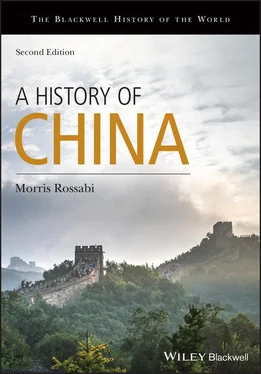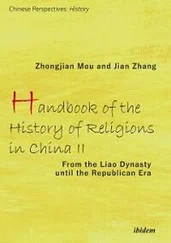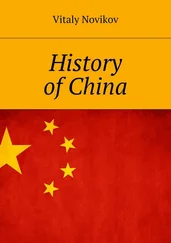Confucius perceived that the separation of content and name, as exemplified in such formalism, resulted in social disarray. Because his teachings were designed to avert such instability, he placed great faith in zheng ming or “to rectify the names.” Lack of congruence between reality and form signified an inability to fulfill the Confucian moral code and to establish an orderly social system. Thus, the first step in achieving a stable network of relationships was a proper correlation between name and reality. Zheng ming also implied that each individual could more easily identify and understand the expectations of his own position and tasks in these relationships and would more readily accept his status in the social hierarchy.
However, Confucius did not advocate a stagnant society in which the individual had no opportunities for advancement. The value he placed on education, merit, and moral worth would clash with systems that lacked or prevented social mobility. He conceived of himself as a teacher and obviously valued education as a means of promoting a high standard of morality. Thus, he suggested that study of the classic texts and ritual works and participation in music and dance would improve the individual’s character and could lead to the development of a junzi . To Confucius, this nonspecialized education would enable the junzi to assume positions of leadership. From his perspective, the junzi did not need any specialized training to govern a region, devise a budget, or plan and build irrigation projects. His ideal officials and rulers were rational and moral gentlemen who had a sense of social responsibility and who derived from any social background, not necessarily from the entrenched aristocracy. In Confucius’s view, morality could not be separated from education, particularly in the chaotic times in which he lived. He wanted gentlemen to receive the moral training that would enable them to serve as a striking contrast to the often duplicitous and amoral officials of the Warring States period. He looked to a golden age of the past in which such men dominated society.
Thus, Confucius’s teachings offered a flexible, rational, and moral alternative to the chaos prevailing in China. They were conservative in confirming a defined, hierarchical social structure. Yet they were liberal in challenging the hereditary aristocracy, in supporting a system that encouraged the recruitment of talented and moral men of any social background into high officialdom, and in legitimizing social mobility. They had the additional advantage of making educated and socially responsible men available to rulers who required counsel and assistance in administration. Although the leaders of the Zhou era did not recognize the value of Confucianism, the Han dynasty, which ruled China within several decades after their fall, would promote Confucianism, and later dynasties would adopt it as a state cult.
Mencius followed in Confucius’s footsteps but supplemented his predecessor’s teachings. Born around 372 BCE, he was active about a century and a half after the death of the revered philosopher. Like Confucius, he became a teacher and traveled widely to disseminate Confucian values and ideas. Until his death in 289 BCE, he continued to expand upon Confucius’s philosophy. Also like Confucius, he encountered frustrations in his efforts to secure support from the rulers of the various states for his own version of Confucian philosophy.
Mencius was doubtless more optimistic than Confucius about the individual. He started with the premise that mankind was basically good. Yet he diverged sharply from those who advocated a concept of universal goodness. He suggested instead that the extent of a person’s goodness toward others depended on the closeness and social status of the other. Behavior and attitude toward others was based, in part, on one’s position in the social hierarchy. Righteousness ( yi ) mandated specific treatment of others, and the individual had defined obligations toward those of higher or lower social status. Like Confucius, Mencius accepted a hierarchical social structure.
However, on closer examination it turns out that Mencius also demanded proper conduct and benevolence from rulers. In one of his conversations, he admonished a king for focusing on profit rather than on humaneness and righteousness. He said that, if the king would emphasize a humane administration, the rest of the population, modeling its behavior on his, would act humanely toward one another. A humane administration would, in turn, guarantee the people’s livelihood, ensuring that ordinary folk would not suffer deprivation or want. Proper land distribution was vital because most Chinese eked out their livelihoods from their farms. Mencius’s humane government would mandate a more equitable arrangement, which was the well-field system that had reputedly been the foundation of a golden age in the past. Under this scheme, each so-called well field would be divided into nine equal sections, with eight households working eight plots while one was a community-farmed public field. This utopian, egalitarian system never truly operated in Mencius’s own time or in some great earlier era in Chinese civilization. Nonetheless, Mencius proposed it as the ideal way to avert instability in the countryside. He did not, however, advocate absolute equality because he believed that society required rulers. Equality also would not prevail within the family because sons needed to obey their fathers and younger brothers their elder brothers, in accordance with the principle of filial piety. Rulers had a responsibility toward the ruled. Mencius reiterated the Mandate of Heaven theory that had dominated political thinking for centuries. Heaven entrusted power to the ruler who, in turn, upheld his mandate by benefiting the people.
Xun Zi (?312–230 BCE), the third of the most prominent Confucian thinkers, diverged somewhat from his predecessors. However, the oft-depicted idea of Mencius and Xun Zi as representing antithetical poles of the Confucian school of thought is too simplistic. Both emphasized the value of government and civilization; both emphasized morality above profitability; both had an abiding faith in the educability and perfectability of mankind; and, unlike the Daoists, both regarded mankind as the center of the universe. Yet, having endured a longer period of chaos, strife, and brutality during the Warring States period, Xun Zi disputed Mencius’s overly rosy assessment of mankind.
Indeed, in his principal work, known as the Xun Zi , Xun Zi baldly stated that “Man’s nature is evil” and that “goodness is the result of conscious activity.” Corrupt governments, unprincipled rulers, and use of magic and prayers attested, in his view, to the chaos generated in an unregulated and disorderly society. Study of the classical texts and practice of the Confucian rituals, which served to curb mankind’s evil yearnings, offered the basic prescription for a peaceful land. Xun Zi had faith in education, stating that once a man was shown the proper path he would follow it. Sages who had studied the classics and become morally purified through proper conduct of rituals would lead the people to pursue the same course. Although humans were intrinsically evil, they could be trained to strive for the good. According to Xun Zi, sages should exhort the people to perform music, dance, funeral, and wedding ceremonies properly and not to be distracted by criticisms of these elaborate and expensive rituals. He attributed vital functions to li ; it helped people to cope with, regulate, and express emotions of happiness, loss, and failure and to develop proper respect for others in the social hierarchy. However, he rejected belief in prayers for rain and in the intrusion by ghosts and demons into human affairs, treating belief in such figures as superstitions, not rituals.
Читать дальше












